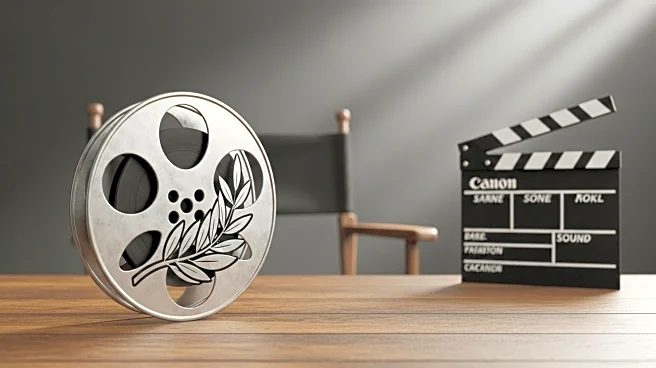What's Happening?
Film Workers for Palestine, an advocacy group, has announced that over 1,000 industry professionals, including Ava DuVernay and Olivia Colman, have signed a pledge to boycott Israeli film institutions. The pledge, inspired by the 1987 Filmmakers United Against Apartheid movement, aims to protest against institutions implicated in genocide and apartheid against Palestinians. The signatories have committed not to screen films or collaborate with Israeli festivals, cinemas, broadcasters, and production companies involved in these activities. The pledge was made public through an open letter on Instagram, highlighting the role of cinema in shaping perceptions and the moral duty to stand against oppression.
Why It's Important?
The boycott represents a significant stance by influential figures in the film industry against perceived injustices in Israel. It underscores the power of cultural and artistic communities to influence political discourse and advocate for human rights. The pledge could impact the Israeli film industry by reducing international collaboration and visibility. It also reflects broader global tensions and debates surrounding the Israeli-Palestinian conflict, potentially influencing public opinion and policy discussions. The involvement of high-profile names adds weight to the movement, signaling a growing willingness among artists to engage in political activism.
What's Next?
The pledge may lead to increased scrutiny and debate within the film industry regarding ethical collaborations and the role of art in political activism. Israeli film institutions might respond by addressing the allegations or seeking dialogue with the signatories. The boycott could inspire similar actions in other cultural sectors, amplifying calls for accountability and change. As the situation evolves, stakeholders in the film industry and political leaders may need to navigate the complexities of cultural diplomacy and human rights advocacy.








